Hi Susun,
I am new to menopause and was just wondering if digestive issues are associated with this change and if you have suggestions from the Wise Woman tradition to deal with digestive issues naturally?
Susun’s response:
Step 1: Collect Information
As the mix of hormones in your blood changes during your premenopausal years, you may notice the effects on your gastrointestinal tract both directly – estrogen is a gastrointestinal stimulant and varying levels may swing you from loose stools to dry ones – and indirectly, as the hormonal load places ever heavier demands on the liver.
Hormones have a strong effect on the motility of the intestinal tract. When your levels of estrogen and progesterone change (as they do throughout menopause, during pregnancy, and before menstruation and birth), your bowel patterns change, too.
Your liver is, among other things, a recycling center. It breaks down hormones circulating in the blood when they are no longer needed and makes their “parts” available for the production of more hormones. During the menopausal years some hormones (such as LH and FSH) are produced in such enormous quantities that your liver may struggle to keep up with its recycling work, and have little energy left over for digestive duties. Help yourself with these Wise Woman Ways.
Step 2: Engage the Energy
• Bless your food out loud before you eat; say grace; thank the plants and animals who nourish you; breathe in and feel grateful.
• My mother’s favorite way of preventing digestive distress and ensuring regularity is to eat at regular times and go to the toilet at regular times. You’d be surprised how effective this is.
• First thing in the morning, get yourself a cup of hot water (or herbal tea) and bring it back to bed. Sip it slowly, and gnaw gently on your bottom lip. Then lie on your back and bring your knees up, feet flat on the bed; place your palms on your belly and breathe deeply. Gently begin to rub your belly (in spirals): up on the right, across the middle, and down on the left. Soon you will feel the movement gathering momentum. Sit up slowly and head for the toilet.
Step 3: Nourish and Tonify
• Yellow dock root vinegar or tincture is a wonderful ally for menopausal women with digestive distress. Daily doses of 1 teaspoon/5 ml vinegar or 5-10 drops of tincture eliminate constipation, indigestion, and gas. Yellow dock is especially recommended for the woman whose menopausal menses are getting heavier.
• Dandelion is everyone’s favorite ally for a happy digestive system and a strong liver. It relieves indigestion, constipation, gas, even gallstone pain. How to use it? Have a glass of dandelion blossom wine. Eat the omega-3-rich leaves in salads. Enjoy the phytoestrogenic roots as a vinegar or tincture (a dose is 1-2 teaspoons/5-10 ml vinegar or 10-20 drops tincture taken with meals) or as a coffee substitute.
• Any rhythmical exercise, especially walking, relieves digestive gas and improves intestinal peristalsis (the movement of feces). Oriental wisdom says the liver loves movement.
• Motherwort, fenugreek, vitex, or black cohosh tinctures, taken daily, strengthen digestion and ease menopausal digestive woes. Or try a cup of garden sage tea.
• If constipation occurs due to a lessening of the moistening, lubricating cells in the colon, slippery foods such as slippery elm bark powder, oats, seaweed, flax seed, and seeds from wild Plantago (or cultivated psyllium) are wonderful allies. Adding a teaspoon/5 ml of any, or better yet, all of them to a cup/250 ml of rolled oats and cooking until thick in 3 cups/750 ml of water is a delicious way to prepare this remedy.
• My favorite remedy to relieve digestive and gas pain is plain yogurt. Sometimes even a tiny mouthful will bring instant relief. Acidophilus capsules work, too. I use both when dealing with chronic constipation or severe diarrhea.
Step 4: Stimulate/Sedate
• White flour products slow the digestive tract; so does too much grain-fed meat. Whole grain products, well-cooked beans, wild meats, and cooked greens speed it up.
• Add more liquids and soft foods to your diet – applesauce, yogurt, nourishing soups, herbal infusions – to help relieve constipation. Chew your food slowly and savor it. Drink lavishly between meals.
• Menopausal women will want to avoid the use of bran as a laxative, as it interferes with calcium absorption. Instead try prunes, prune juice, rhubarb with maple syrup, or figs.
• Ginger tea with honey is a warming, easing drink when your tummy is upset. Ahhh. Try the fresh root grated and steeped in boiling water, or put a tablespoon of the powdered stuff from your spice cupboard in a cup of hot water and enjoy.
• Crushed hemp seed (Cannabis sativa) tea – rich in essential fatty acids – is a specific against menopausal constipation.
• Herbal laxatives such as aloes, cascara sagrada, rhubarb root, and senna are addictive and destructive to normal peristalsis. Except in rare cases (such as relief of constipation for a ninety-year-old woman confined to a bed), I do not advise their use.
Step 5a: Use Supplements
• Constipation and digestive distress are common side effects from taking iron supplements. A spoonful of molasses with 10-25 drops of yellow dock root tincture in a glass of warm water is a better way to increase iron, and improve elimination.
Step 6: Break and Enter
• Enemas and colonics are last-resort techniques. They do not promote health and may strip the guts of important flora. Regular use of enemas is highly habit-forming. For the sake of your health, avoid them.
Green blessings, Susun Weed
photos: Wise Woman Spiral © iStockphoto.com / Chuck Spidell | Barn Owl © Jeannine Chappell



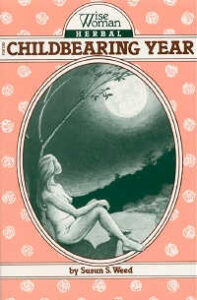
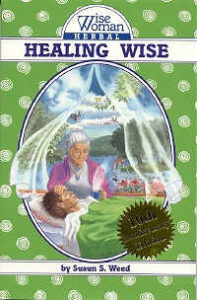
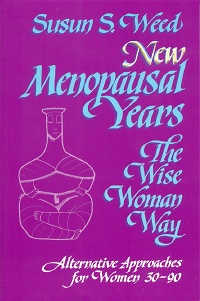
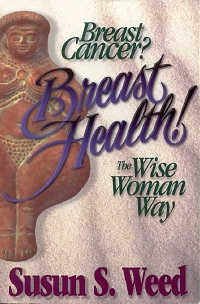

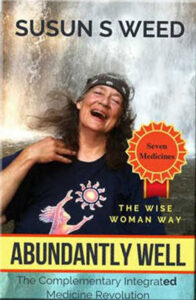



0 Comments